Maktaba’s First Year Anniversary: A Challenge to the Status Quo and the Presentation of Books
Flowers to The People: Unwrapping a Gift that Keeps Giving
On Saturday, June 17, the refreshing artist-run Maktaba Bookshop celebrated its one-year anniversary. Located in the Old Port, the welcoming majlis harbored a DJ set with spellbinding remixed Arab music, refreshments available to all attendees, limited print editions, and a sense of diasporic shelter.
“I wanted the bookshop to feel like you come in and you don’t know where you are, as it shifts your sense of place. I wanted it to have this feeling of home; and whatever home represents for different people. We all have different definitions of home, but I wanted it to feel like a cozy universal home space”, said Abdul-Hadi, co-founder and co-owner of Maktaba.
Multidisciplinary Iraqi artists Sundus Abdul-Hadi and Yassin Alsalman, also known as Narcy, hosted the anniversary with an understated and organic approach without excessive promotion or extravagant gestures.
Abdul-Hadi mentions that it took nine months to set up Maktaba, comparing it to pregnancy. With its grand opening in June 2022,she acknowledges the challenges and vulnerability since the business began but expresses gratitude for the community's support, which she humbly credits as helping Maktaba thrive during this critical period.
Maktaba serves as a continuation of the founders' artistic practice, with a focus on aesthetics, curatorial work, and creating a site-specific installation. It incorporates the concept of home and the notion of home being expansive and diverse. Both of them explain that with the birth of their bookshop, their prerogative was to create a permanent space and a lasting sense of home for BIPOC communities.
Abdul-Hadi's dream of opening a bookshop took shape after organizing and curating a pop-up event called Take Care of Yourself on St-Laurent Street. Inspired by the week-long exhibition that united artists from diverse backgrounds exploring themes of struggle and care, Abdul-Hadi aimed to create Maktaba—a lasting space for cultural representation, with a special focus on serving the Middle East and North African community.
“For so long, all those amazing events and pop-ups felt so temporary and short-lived; and it felt like there was a new real beginning for us to gather, especially after the pandemic in the name of culture”, explained Abdul-Hadi. “With Maktaba, choosing to focus on my own Middle East and North African cultural content, I really wanted it to feel a sense of representation for that community, which is my community”.
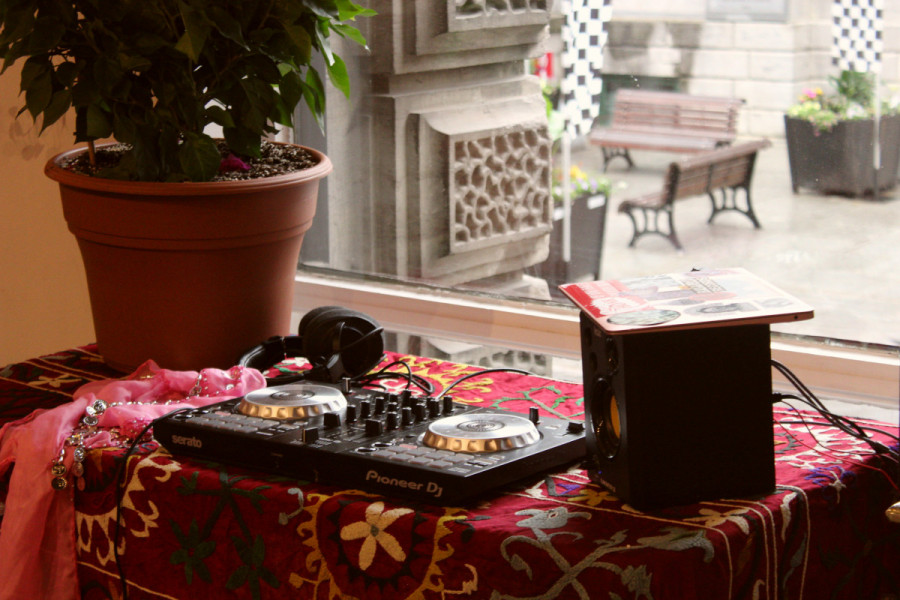
“The Middle East and the Arab world are so misunderstood but have such a rich cultural heritage, I want the voices from our community in the diaspora, or the motherland, to have more space on the shelves”. — Sundus Abdul-Hadi
As Abdul-Hadi expresses the idea of bringing together diverse voices and communities within a shared space, she underlines the lack of sufficient representation for the Middle Eastern and Arab communities within indie bookshops in Montreal. The origins hence stemmed from a need to create space, an interest in highlighting knowledge from her own community, and the inspiration she derives from the extended community in Montreal, which has nurtured her creative work.
“For such a long time, I’ve loved bookshops; and there’s no shortage of amazing indie bookshops in Montreal, but it always felt like there was not enough representation for (the Middle East and North African) community”, said Abdul-Hadi. “The Middle East and the Arab world are so misunderstood but have such a rich cultural heritage, I want the voices from our community in the diaspora, or the motherland, to have more space on the shelves”.
When it comes to the values that Maktaba promotes regarding cultural hospitality and community, there is also an emphasis on artistic sovereignty and sustainability. The use of plastic is minimized, as the bookshop relies on paper-based and biodegradable materials, with a significant portion being recycled and reused. Abdul-Hadi explains that the packaging received is repurposed, including bubble wrap and other materials.
Curated through different categories, several of them being “Ancestral Knowledge”, “Perspective Shift”, “The Creative Self”, “Everything is Political”, “Palestine” and “Black Power,” Alsalman explains that Maktaba follows a chapter-based system in their store, introducing a new theme every seven to eight weeks. Presently, they find themselves in the seventh chapter, with the completion of the first year as a theme. The merchandise released for the event emphasizes the unique cyclical nature of their endeavors.
Abul-Hadi explains there are three main sections in the collection at Maktaba, which include “Personal Inspirations” based on Sundus' own cultural background and inspiring books as well as community perspectives that are also curated by local members of the bookstore.
The same philosophy guides their current event, as they extend an invitation to the community to gather and relax in the inviting atmosphere of the majlis. For their one-year anniversary, Maktaba has enlisted the talents of Cheba Iman, a local DJ who shares a friendship with Darine Tahan, one of the bookstore’s staff members.
Hosting the anniversary with a DJ set and being a musician himself, Alsalman unfolds how music is an essential component of the shop. While Abdul-Hadi is more of a book collector, Alsalman is responsible for stocking the vinyl records and ensuring music is represented in the store. For him, albums are like books that told stories of people's lives. The music and art book section is curated by him. The limited merchandise they create is inspired by Alsalman’s experience of buying CDs and skate brand T-shirts in the '90s.
“I think when it comes to stocking the books, and the ideas, we really wanted to focus on people of color, or people that when you go to an Indigo, you don’t see that work in the front, you see it tucked it in between the public commercial stories that are out there”, said Alsalman.
In front of the Maktaba bookshop, vibrant flowers not only serve as eye-catching decorations but also play a significant role in the store's concept. Inspired by the revolutionary Black Panther's slogan "Power to the People," Alsalman explains how these flowers symbolize empowerment and the transfer of power within society. Alsalmann acknowledges and shares the metaphorical flowers with the supportive community and visitors who sustain the shop, choosing to give back to those who contribute to the space.
“When it comes to the community coming in here, we want somebody who doesn’t know who Edward Said is to leave here with Edward Said”, added Alsalman. “We want somebody to come in here and leave with a book about Zahra Hadid’s work or Khalil Gibran’s anthology or whatever it might be; just that cross-cultural experience is our main mission. It’s to challenge people who haven’t interacted with Arab culture in this way, to fully embrace it and let go of their stereotypes and their negative representation in their minds.”
Alsalman expressed gratitude for InSpirit Foundation's partnership, which powers events, creates Maktaba moments, and sustains the business during challenging times. InSpirit Foundation, a Toronto-based public foundation, supports narrative changemakers, challenges discriminatory structures, and amplifies diverse stories through grants and programming funded by their investment portfolio from the sale of the Vision TV license.
Abdul-Hadi envisions her bookshop as a sustainable model that transcends the extractive nature of capitalist culture. She explains that art typically lacks a welcoming atmosphere. It tends to be characterized by high costs and exclusivity, causing discomfort for many individuals. The price tags associated with artwork often outweigh the affordability of most people. In contrast, books offer a more accessible alternative.
“Knowing that when you’re sporting an independent bookshop, you’re giving back to the community”, explained Abdul-Hadi. “It’s literally a cycle of give and take; it’s a really healthy and beautiful exchange. By offering books, we offer knowledge ultimately and less of a commodity. Yes, it is a commodity but it’s knowledge like a medium.”
You can find the bookstore located at 165 Saint-Paul St W, Montreal,or on their Instagram page.

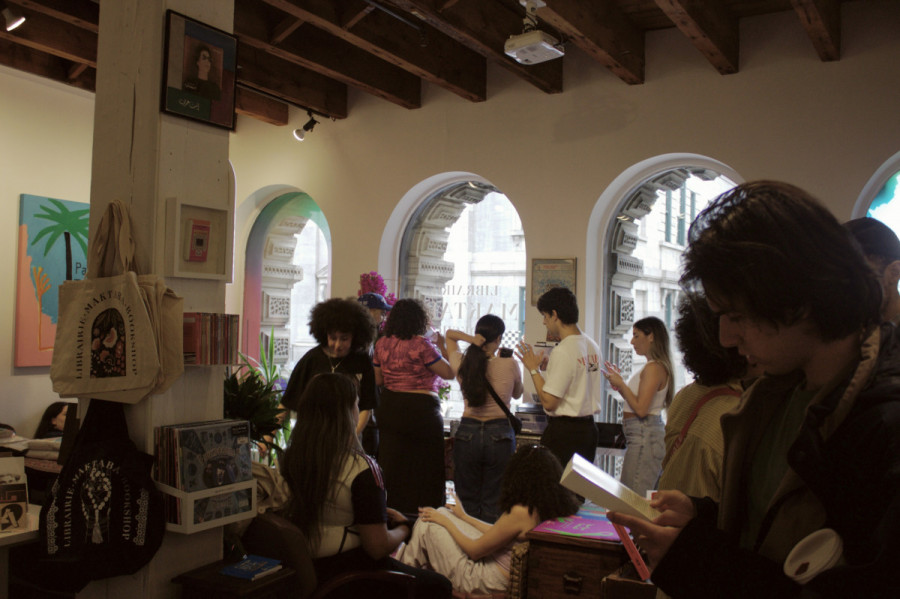


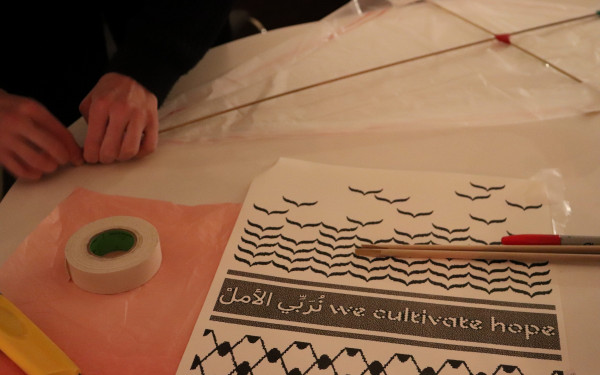
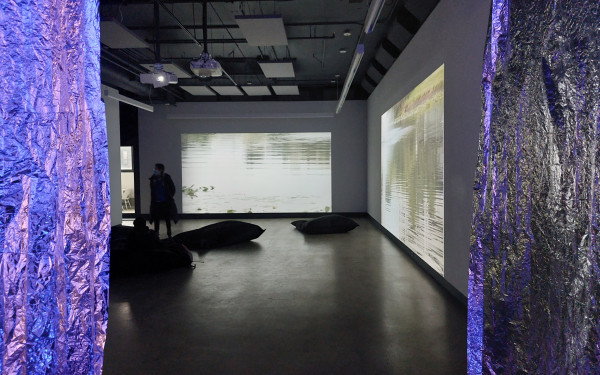
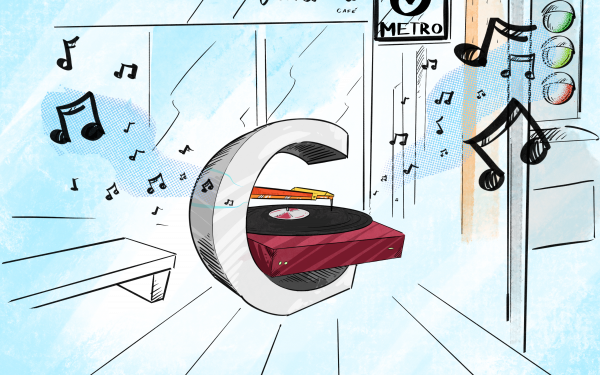
_1_600_375_90_s_c1.jpg)